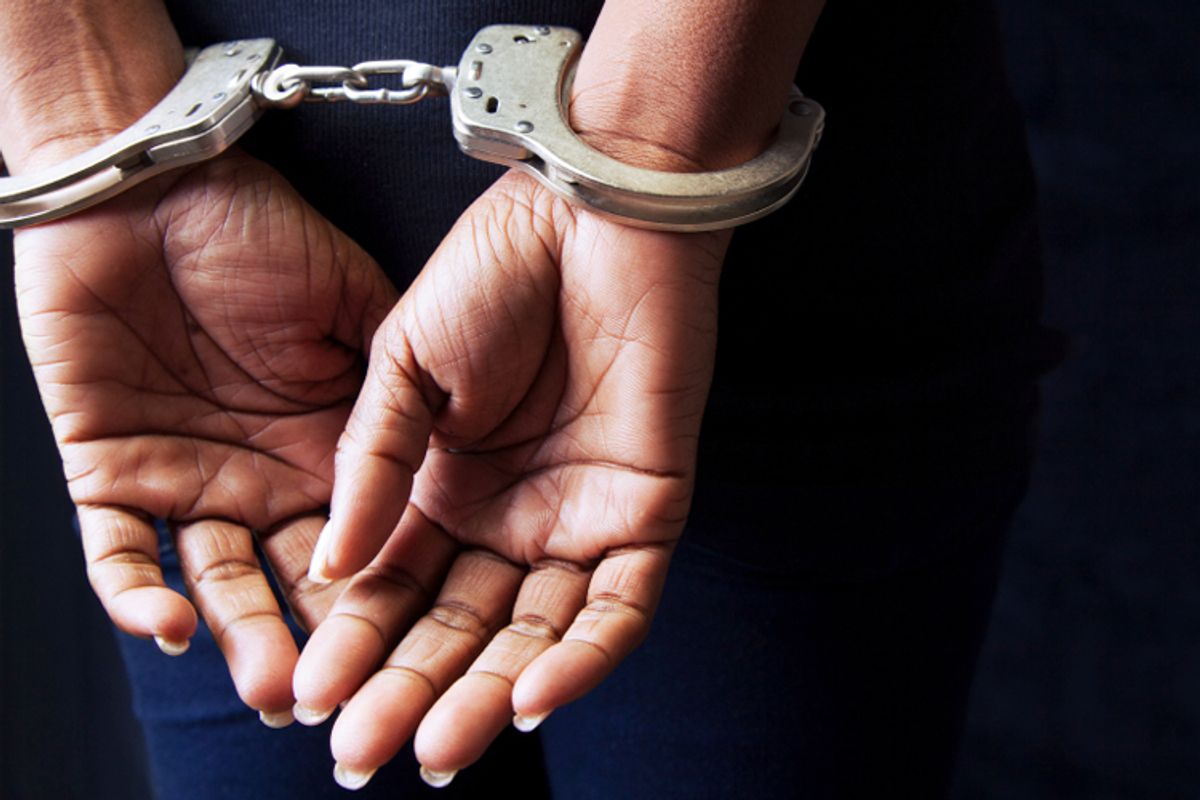The tragic death of NFL star Adrian Peterson’s 2-year-old son last week adds another dimension to the ongoing national conversation about domestic and intimate partner violence. Peterson’s son, whose name has not been officially released, was allegedly beaten to death by 27-year-old Joseph Patterson, a man who was dating the child’s mother. Patterson had been arrested on multiple occasions for beating the mother of his own young son. She had taken out at least two orders of protection against him. Not only had he threatened to kill his former partner, but he had also beaten their child. A judge ordered him to undergo domestic violence counseling.
In a case in Palmdale, Calif., just two weeks ago, a 2-year-old girl named Zanai was allegedly murdered by Matthew Worthen, her mother’s boyfriend. Over the summer, Worthen had been jailed for beating the mother so badly that she had to be hospitalized. Much like in the case of Joseph Patterson, a restraining order was granted, but had apparently expired.
According to the girl’s mother, she left her baby with Worthen for just a few minutes, while she ran to the store. Robert Skinner, Zanai’s father, heartbroken and enraged at the death of his baby girl, suggested that both the mother and her partner be jailed: “How could you leave our daughter with a man who, mind you, has already put his hands on you up and down? Then you have to get a restraining order against him and you’re still dealing with him? That’s crazy!” Skinner said.
I do not in any way want to minimize the unfathomable pain and rightful rage that this father has over the death of his daughter. But his demand that his daughter’s mother be locked up exposes a troubling thread in this conversation about domestic violence and child abuse that I have seen characterizing some of the reactions to these stories in social media: blame of the mother. Figuring this as a problem of failed mothering, blaming mothers who have been battered and are fearful, is not a solution to this problem.
Certainly, I wish in both cases that these moms felt like they had better options for care than leaving their children with violent partners. I wish they understood that violence is often about power, and children, being powerless, become easy targets. It goes without saying that parents are responsible for protecting the well-being of their children. But blaming women who themselves have been victimized by these men obscures the consistent role that men have to play in both perpetuating and reducing the cycle of violence in families. Perhaps these mothers could have made different choices about who cared for their children, but it is the abusers who made the choice to fatally wound these helpless little people. Not focusing our attention there, first and foremost, means we will be doomed to repeat this cycle.
Telling ourselves that prisons will deal with these men does nothing to solve the problem of women and children who are abused every day, but who don't die. The men who perpetrate these acts often move in and out of the criminal justice system with impunity, just as Patterson and Worthen did in all the violent incidents that preceded their choice to murder. Telling women to mother better, as though this is a real solution to solving the problem of domestic violence and child abuse, is like telling women to stop drinking at parties in order to stop the problem of rape. Abuse will stop when we address abusers. Rape will stop when we address rapists.
But none of this can start until we get over our collective denial about the humanity of abusers. Violent people don’t exist outside of our families and communities; often these are people that we know and even love. Abusers are human beings who become monsters under certain circumstances. And it is easy to get angry with mothers for choosing to stay, even though we allow brothers, cousins, uncles and friends to stay in our lives and in our communities, without accountability, even when we know they have put their hands on a partner.
It is easy to sanctimoniously demand that women leave, without ever thinking about the economic and legal resources it takes to be able to go. These men’s access to these children, their continued ability to do harm, is as much, if not more, the fault of a system that does not take domestic violence seriously as it is the poor choices of individual, struggling mothers.
By taking domestic violence seriously, I do not simply mean giving more prison time, though in this case it might have helped. We need a serious system of community-based, publicly funded domestic violence rehabilitation programs, which holds men accountable and makes their ability to live freely in communities contingent upon upholding agreed-upon standards of nonviolence. One example of such an organization is Men Stopping Violence, a nonprofit in Atlanta. Another example is the #31forMarissa Campaign, which attempts to engage black men in a conversation about ending domestic violence in black communities.
These efforts point to the great need for a cultural overhaul of our narratives about what it means to be a man, particularly since traditional notions of masculinity are secured through the threat of violence. It wasn’t so long ago that women and children were considered the property of men in this country, and though that legal structure has largely been dismantled, much of the thinking that undergirded it remains. This has to change if we want women and children to be safe in their own homes.
I have not offered any easy solutions here. I also haven’t addressed the problem of women who abuse children. But as one of my colleagues, Khadijah Costley-White, pointed out to me, whether it is women or men doing the abusing, somehow women are always to blame. Getting men to divest their interests in patriarchy, collectively and individually, is incredibly difficult work. And our children are worth it.



Shares